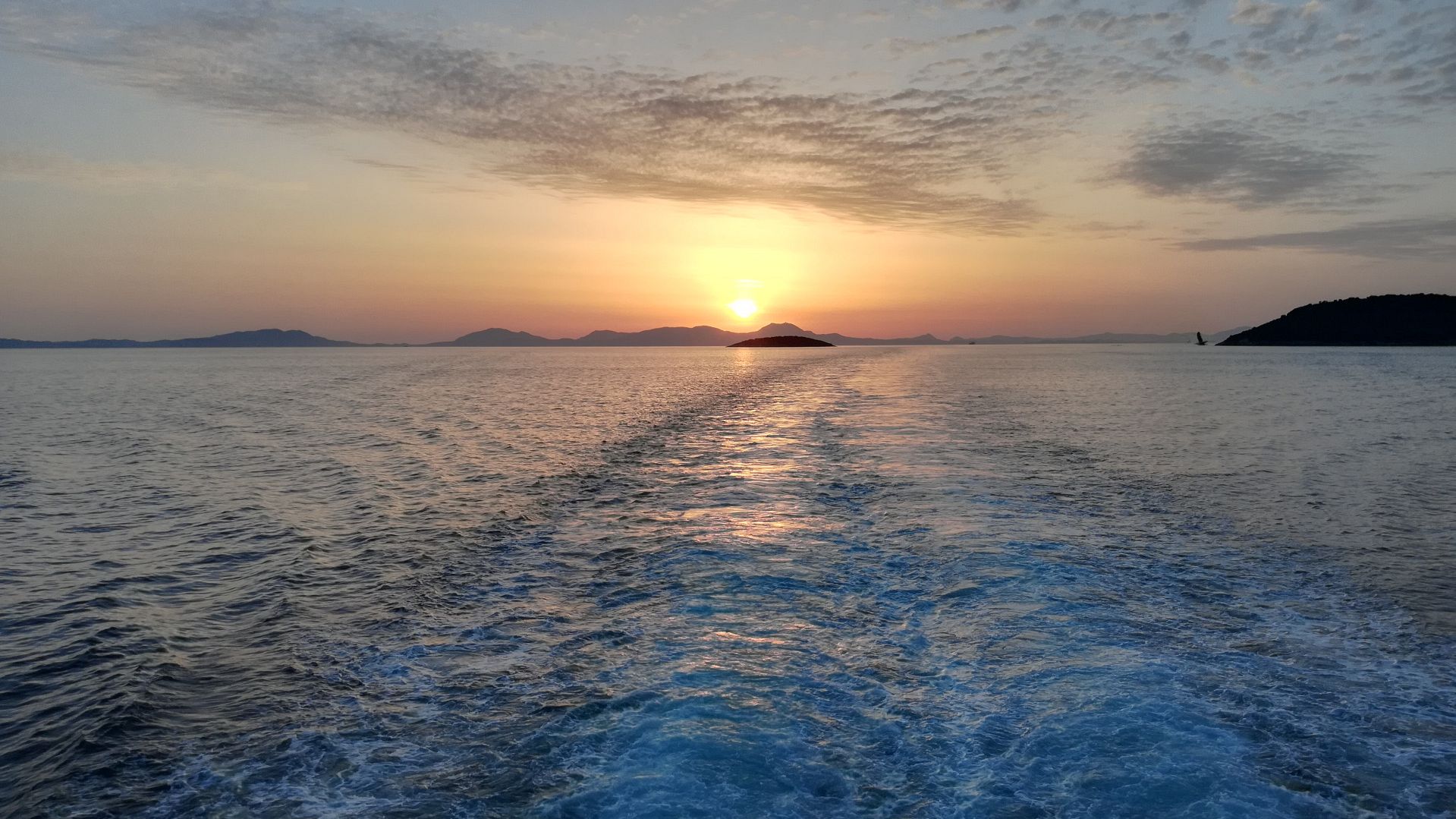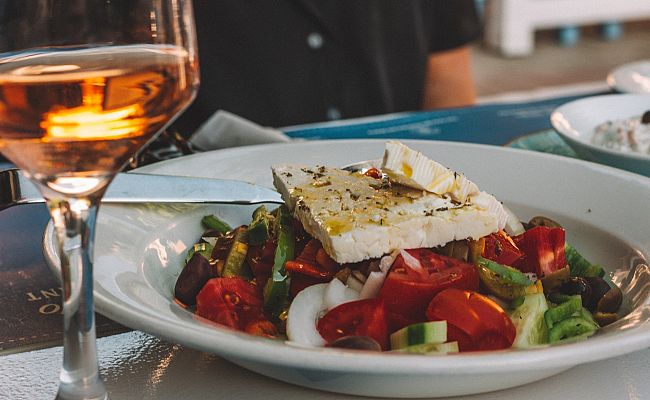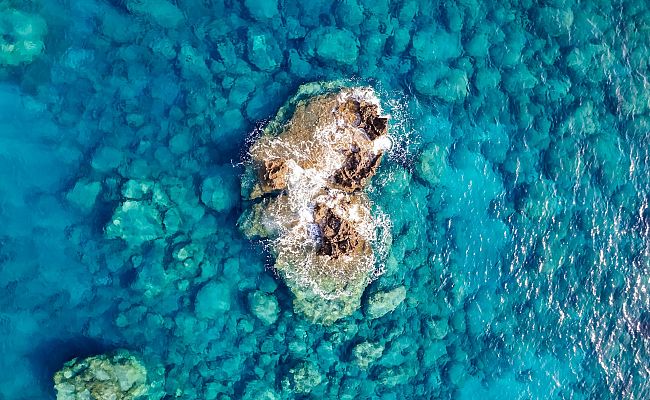A sailor's way of life is often shaped by laws that are quite incomprehensible to the average person. What does a standard sailor consist of in our understanding (if, of course, we disregard all book knowledge)? The picture is as follows: beliefs (or superstitions), maritime traditions, a smart white uniform, a cap with ribbons, and an unusual "maritime" language. Is that all? - Not at all. One could talk about a sailor's life for a very long time. Some people even write entire books about it. Today, we will consider just a few interesting omens that you may have heard about.
-
Is There No Place for Women on Board?
This superstition holds an honorable first place. Only the lazy do not know that "a woman on a ship is a disaster." Of course, in the modern world, a woman can master any profession and succeed in it despite anything. But this omen does not disappear anywhere. Although few people know the original source of its emergence. And it has nothing to do with the "luck" of women.
One of the theories of origin is the banal English language. Ships were usually given female names, especially in England, where ships of the same series were called sisterships. Therefore, it became a custom that a "she-ship" could make the crew members jealous (who have always been men) of the woman on board. Hence the trouble that inevitably awaits sailors if there is a female competitor on board.
-
Bananas - no!
Have you heard of this superstition? There are numerous variations of its origin among sailors.
Some rely on statistics from the 1700s, when trade relations between Spain and the countries of the Caribbean basin were actively developing. Many ships were sent at that time, carrying bananas on board. However, a very small number of them reached their destination. There is also a more scientific explanation for sailors' reluctance to transport this cargo. Bananas are highly susceptible to fermentation, and there is an opinion that they are capable of releasing toxic substances that can have a negative impact on human health. Perhaps this is a myth, but the fact that sailors have been reluctant to transport bananas for a long time cannot be denied.
And there is also an opinion that a special type of poisonous spiders is found specifically in banana trees, which in ancient times often bit sailors, leading to their death. Whether to believe this or not is up to you!
-
Tattoos and Earrings for Good Luck
When it comes to tattoos, only some of them were considered lucky. For example, images of a pig and a rooster on a sailor's limbs used to be the norm. It was believed that in case of a shipwreck, these animals would show the way to the shore. It was also common to see tattoos of stars on the body. According to beliefs, the North Star would always guide the sailor home, no matter where he was.
Sailors had a similar story with earrings. They wore only gold rings for good luck to avoid storms and safely reach the shore.
-
Do not whistle!
Among sailors, it is said that purposeless whistling on board can lead to a storm. That's why such entertainment is considered unacceptable on a ship. However, if we delve a little deeper into history, the majority of commands on ships were given using whistles in the past. So, whether to believe in this omen or not is a question! That's why the emphasis is placed on the fact that whistling is not allowed, only if whistling is used as entertainment. In all other cases - why not?
-
As you name the ship, so it will sail
There are also several variations of explaining such a belief. The first one is that you cannot rename a boat after it has already been given a name and baptized. It is believed that the name of the ship gives it a soul, and changing the name will lead to a 100% catastrophe. If the owner of the ship decides to change the name, then a special ritual must be performed.
The ritual of renaming a boat looked like this: the current name was written on a piece of paper, folded, and placed in a wooden box. It had to be set on fire, and the ashes had to be scattered into the wind towards the sea.
As for the name of the ship and its fate, many books and documentary sources state that a ship bearing the name of a specific person would repeat their tragic destiny. This symbolism is particularly vividly observed in Greece today. Greeks always place a small ship under the Christmas tree as a symbol of good luck. Local residents almost always name their boats with beautiful female names, but never with the surnames of specific individuals.
-
Unhappy Days
It used to be believed that Friday was a bad day to go out to sea and to open a maritime enterprise in general. Specifically, Friday, because Christ was crucified on this day. If a ship started its journey at the end of the week, the trip was almost doomed to failure.
Also, it is said that Thursday is not the best day for sailors. After all, it is Thor's day - the god of storms and thunder. Other days, such as the first Monday in April or the second Monday in August, for the most part, were also associated with either pagan or mythological events. Undoubtedly, today hardly any shipping company will adhere to such superstitions. But the fact remains.
Other Sailors' Superstitions
There are many other signs that sailors often refer to for one reason or another. Some of them defy common sense, so they are told among ship crews solely as anecdotes. But a few interesting rituals are still worth mentioning.
What do you know about prohibited words on board? Most likely, besides the fact that you can't say "судно плывёт" and should only use "идёт", no one has heard anything.
It is believed that certain words such as "drowned person," "goodbye," and "luck" should not be spoken. While the reasons for the first two are obvious and clear, why is it forbidden to talk about luck? If someone wished a sailor a safe journey using this word, it was considered that they automatically brought a curse upon the ship. The only way to lift it was by shedding the blood of the well-wisher. Therefore, fights often broke out even before the ship set sail.
But dolphins always brought good news. If these animals accompanied the ship, it was believed that the journey was coming to an end, and soon the sailors would see the shore. By the way, meeting an albatross on the way is also a good sign. It was believed that the birds carry the souls of deceased sailors and show the ship the way so it doesn't get caught in a storm.
There used to be a lot of superstitions among sailors in the world. Many of them are very strange and not very applicable in modern business. But every sailor knows about such traditions and customs, so any feast will definitely not be sad if you start reminiscing about all the prejudices of our ancestors. The main thing is not to get carried away and not to miss your ship!
Ready for a stroll? Check out the options for yachts for day trips in Greece on the Aktis.Yachts website!











